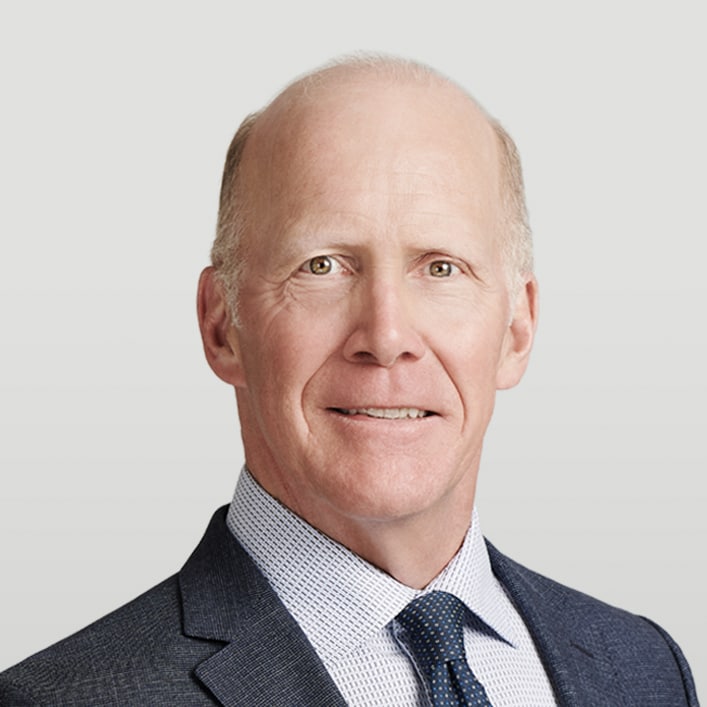The Supreme Court of Canada (SCC) ruled on the proper application of section 4 of BC’s Protection of Public Participation Act, SBC 2019, c. 3 (PPPA) for the first time in Hansman v. Neufeld, 2023 SCC 14. In the decision, the SCC provides guidance to lower courts on how to weigh the competing values of freedom of expression and protection of reputation in situations where the expression relates to an issue of public interest. The SCC affirmed the lower court’s decision and acknowledged there is a paramount public interest in protecting counter-speech that seeks to promote tolerance and respect for a marginalized group in society. The SCC emphasized that the subject matter of Mr. Hansman’s speech (commenting on the need for safety and inclusion in schools, the value of a government initiative, and the fitness of a candidate for public office), the form it was expressed (solicited by the media to present a counter-perspective within an ongoing debate), and the motivation behind the speech (to combat discrimination and to protect transgender youth in schools) are all deserving of significant protection.
Background
In 2016, BC amended the Human Rights Code, RSBC 1996, c. 210 to include a prohibition against discrimination based on gender identity or expression. Subsequently, the Ministry of Education helped develop Sexual Orientation and Gender Identity 123 (SOGI 123), an initiative that aimed to guide educators on instruction about sexual orientation and gender identity and to foster inclusion for students of all sexual orientations and gender identities.
Mr. Neufeld, an elected Chilliwack school board trustee, began publicly criticizing SOGI 123 on his Facebook page. In a Facebook post, Mr. Neufeld called SOGI 123 a “weapon of propaganda” that teaches the “biologically absurd theory” that “gender is not biologically determined but is a social construct” among other similar comments.
This Facebook post garnered significant media attention and criticism, one of the most notable critics being Mr. Hansman, the President of the British Columbia Teachers’ Federation. In several media interviews, Mr. Hansman stated Mr. Neufeld’s views are “intolerant” and “bigoted” and opined that Mr. Neufeld should resign because he violated his obligations as a school board trustee to ensure that students have a safe and inclusive environment for learning.
A month after his initial comments, Mr. Neufeld delivered a speech at a rally where he said that SOGI 123 coddled and encouraged “the sexual addiction of gender confusion” and commented that “gender is…rooted in biology”. Following this speech, the Chilliwack School Board and the Minister of Education asked Mr. Neufeld to resign, but he refused. Just before election day, Mr. Neufeld served a Notice of Civil Claim alleging that Mr. Hansman had defamed him and caused damage to his reputation. Mr. Hansman applied to the court under section 4 of the PPPA to dismiss Mr. Neufeld’s action on the basis that the defamation claim arose from an expression made by him that the expression related to a matter of public interest.
Previous Decisions
In Neufeld v. Hansman, 2019 BCSC 2028, the British Columbia Supreme Court rendered its first decision under the PPPA. The British Columbia Supreme Court granted Mr. Hansman’s application for dismissal and held that Mr. Hansman had a valid fair comment defence, relying on the SCC’s reasoning in WIC Radio Ltd. v. Simpson, 2008 SCC 40. The chambers judge also determined that the public interest in protecting Mr. Hansman’s expression outweighed the harm suffered by Mr. Neufeld.
The British Columbia Court of Appeal (Neufeld v. Hansman, 2021 BCCA 222) disagreed with the chambers judge and allowed the defamation suit to continue. The Court of Appeal concluded that the judge had erred in his assessment of the fair comment defence and in weighing the public interest. The Court of Appeal also concluded that the judge ought to have considered as part of the weighing analysis “the potential chilling effect on future expression” by people in similar positions as Mr. Neufeld about “highly charged matters of public interest”.
The SCC Decision
On appeal to the SCC, the court considered two issues:
- Did the chambers judge err in the weighing exercise set out in s. 4(2)(b) of the PPPA by concluding that the public interest in protecting Mr. Hansman’s expression mandates dismissal of the underlying action?
- Did the chambers judge err in finding that Mr. Neufeld did not show, under s. 4(2)(a)(ii) of the PPPA, grounds to believe Mr. Hansman had no valid fair comment defence?
The SCC answered both questions in the negative.
In explaining the purpose of section 4 of the PPPA, the SCC reiterated that, while defamation lawsuits can help vindicate a personal or professional reputation that is under attack, they can also have the undesirable effect of suppressing open debate. For this reason, certain provinces, including BC, have enacted legislation that prevents strategic lawsuits against public participation (SLAPPs), allowing courts to dismiss lawsuits when the public interest in protecting the targeted speech outweighs the public interest in allowing the defamation lawsuit to continue. Section 4 of the PPPA “creates a pretrial screening mechanism that instructs a judge to dismiss an action arising from expression on a matter of public interest unless the plaintiff can satisfy the judge that their action has substantial merit; the defendant has no valid defence in the proceeding; and the harm to the plaintiff as a result of the defendant’s expression is serious enough to outweigh the public interest in protecting that expression” (at para 37).
To that end, a section 4 application requires a defendant to prove, on a balance of probabilities, that the proceeding arises from expression that relates to a matter of public interest. If the defendant proves this, the onus shifts to the plaintiff under section 4(2) to satisfy the court there are grounds to believe that: the proceeding has substantial merit, and the defenses raised by the defendant are not valid in that they can be said to have no real prospect of success. If the court finds the plaintiff has failed to meet the onus, then the proceeding must be dismissed. If the plaintiff meets the onus, the court must determine if the harm the plaintiff has suffered or is likely to suffer because of the defendant’s expression outweighs the public interest in protecting that expression.
In Hansman, six of the seven SCC justices agreed that the public interest in protecting Mr. Hansman’s speech outweighed the public interest in remedying the harm to Mr. Neufeld’s reputation. The SCC found that Mr. Neufeld had suffered limited harm as evidenced by him continuing to express his opinions and winning re-election. Further, the SCC disagreed with the Court of Appeal’s consideration of the “chilling effect” factor and found that Mr. Hansman’s expression was counter-speech motivated by a desire to protect and increase respect for a marginalized group in society (2SLGBTQQIA+ youth). The SCC acknowledged the discrimination faced by 2SLGBTQQIA+ youth, especially transgender youth, and found that Mr. Neufeld’s statements went beyond a critique of a government program.
Conclusion
Hansman underscores the value of using section 4 of the PPPA to have strategic defamation lawsuits, commenced for the purpose of silencing a particular view on a matter of public interest, dismissed early in the litigation. In addition, Hansman was the first time discrimination faced by 2SLGBTQQIA+ youth in Canada was addressed by the SCC and it allowed the SCC an opportunity to emphasize the importance of protecting those who speak out to protect 2SLGBTQQIA+ youth. Hansman reiterates that not all expression is considered equal by the courts – the closer a particular expression lies to the core values of freedom of expression, including truth-seeking, participation, and diversity, the greater the public interest in protecting the expression.
If your require additional information or further assistance, please contact David McKnight and Naomi Krueger.




